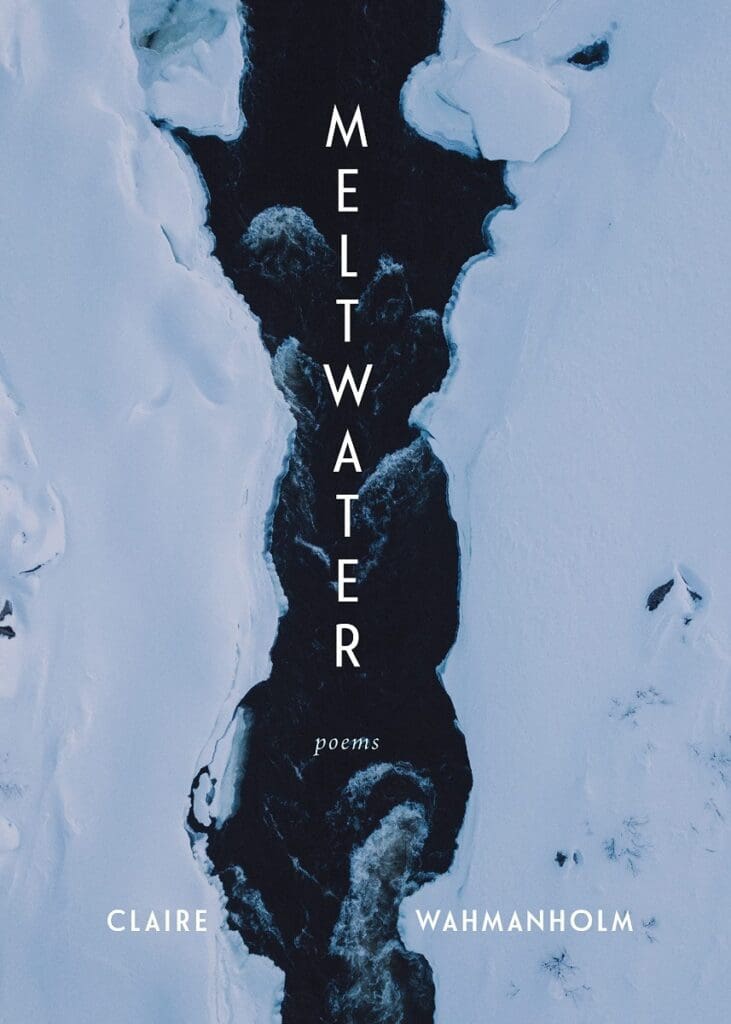Claire Wahmanholm’s latest poetry collection, Meltwater (128 pages; Milkweed Editions), is both a lament for the Earth as it suffers the harmful effects of climate change and a poignant reminder of the joys that make life worthwhile despite this loss. Wahmanholm centers the collection on two recurring series of poems—“Glacier” and “Meltwater”—that follow the anxieties of a person raising children on our threatened planet. In “Glacier,” the speaker battles feelings of grief at the sight of a calving glacier—and guilt at the thought of children experiencing a world without these geological formations:
I am trying to say it’s too late without making them too sad. It’s like how you can’t take the blue paint out of the white paint, like how you can’t hear your name and not turn around. The calving of glaciers is the loudest underwater sound on Earth. I dip my daughters’ ears beneath the surface to let them listen.
The booming volume of a glacier falling and crashing into the ocean resonates throughout the collection, particularly in the “Meltwater” series. Each “Meltwater” poem in the collection was created as an erasure from Lacy M. Johnson’s 2019 New Yorker piece “How to Mourn a Glacier,” and each word used in the series appears only once. Thus, as the collection nears its final pages, the glacier breaks apart, and the words in the “Meltwater” series begin to disappear.
Wahmanholm’s poems balance tangible, climate change-induced events like a calving glacier with other visceral commentaries on the chaos of modern society, such as a comparison between a grenade and a fruit, “the only kind of fruit we can still name.” But, interspersed amid the utterings of grief are Wordworthian tributes to the Earth like these lines in “Glossary of What I’ll Miss”:
Autumn, always. The buzz
by which we know the katydid and the fly.
Coral accumulating its slow colonies, the flax
darting bluely through the meadow.
Along with the use of erasure in the “Meltwater” series, Wahmanholm masters other forms, such as poems inspired by a single letter or by groups of letters. In “XYZ,” the last poem in the collection, a weary speaker finds the strength to brave the future:
Back in the garden, the drizzle glazes into ice. A bronzed apple thuds, a broken yo-yo. I cannot say no. I allow myself to be yanked back up, exhausted. Seized by the topaz sky and the breeze through it. By yes, by you.
Meltwater guides readers through a deep-welling grief for a world in upheaval while offering an antidote to some of that grief. While the collection is heavy with mourning, it is also subtly and deftly uplifting, prompting us to remember the simple things that we “suffer the empty universe for.”

